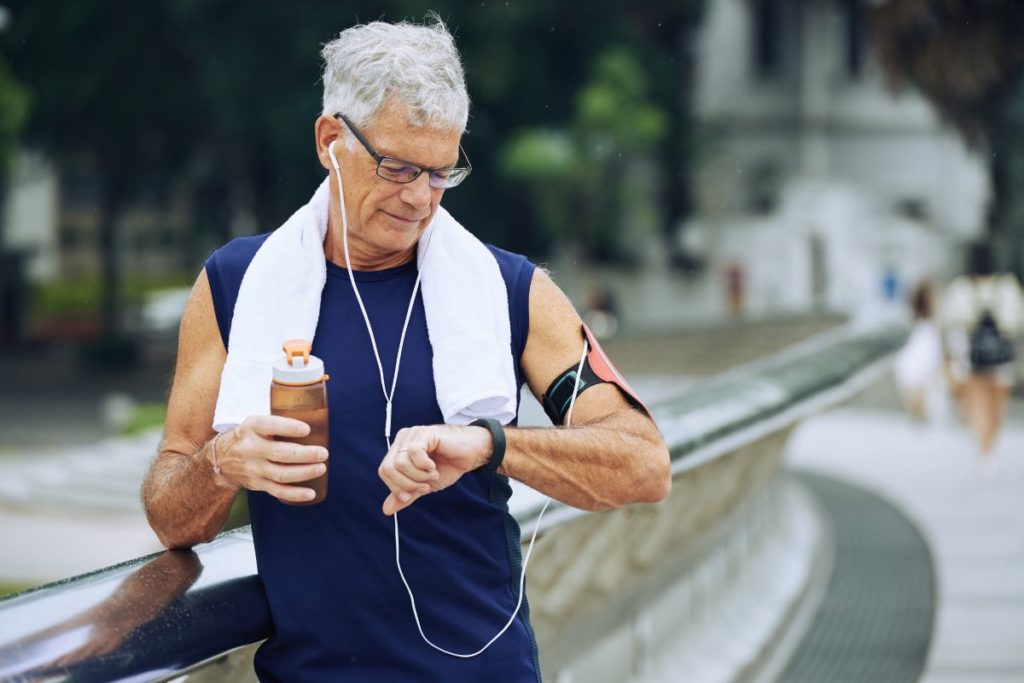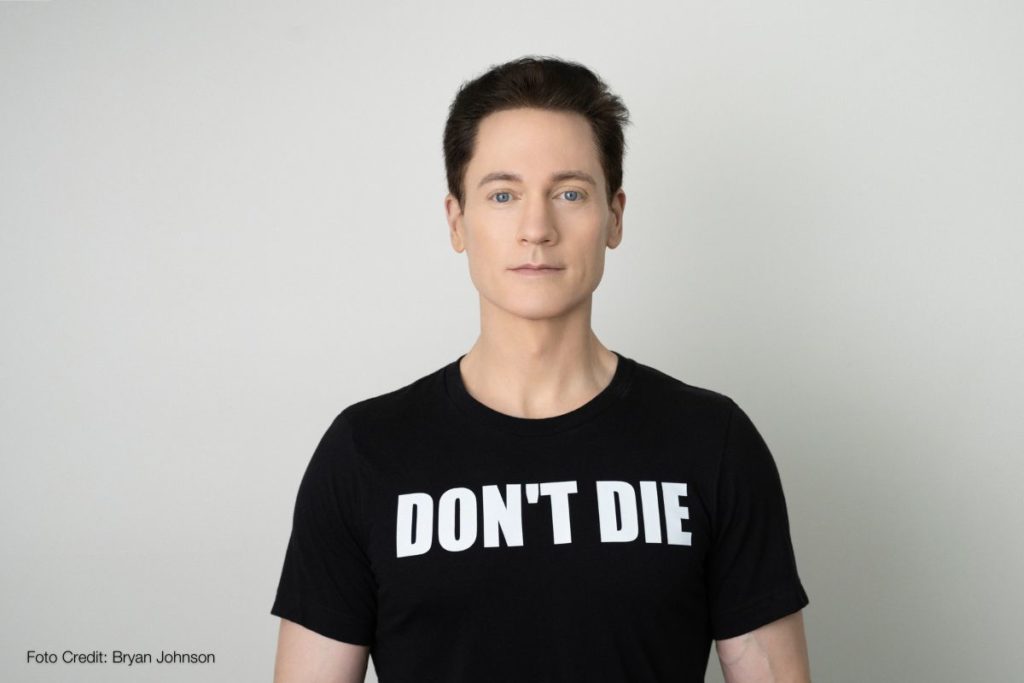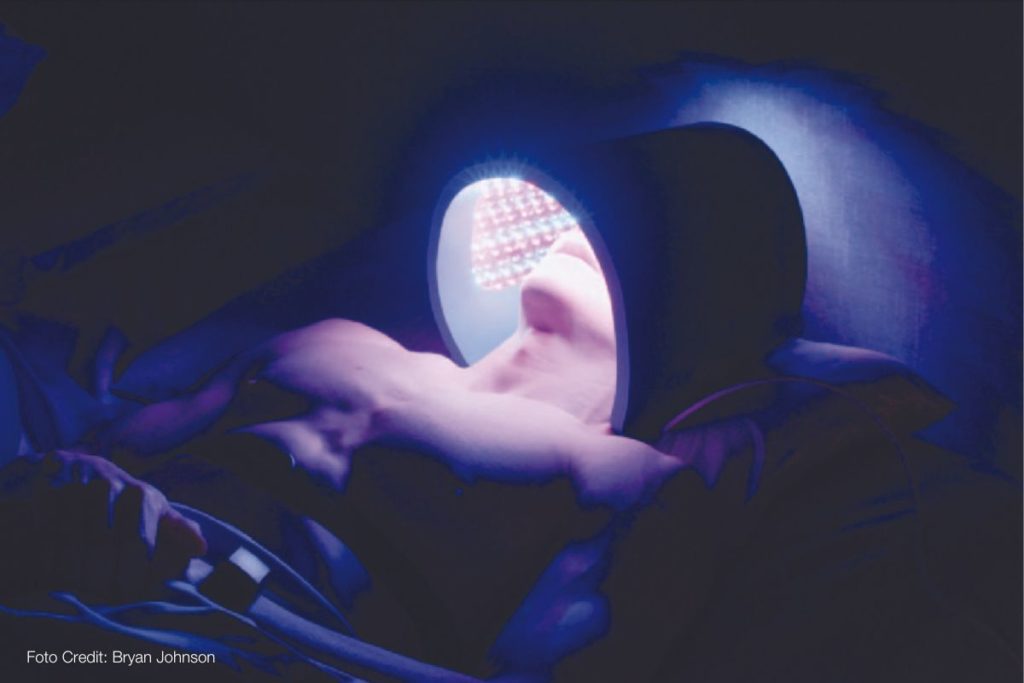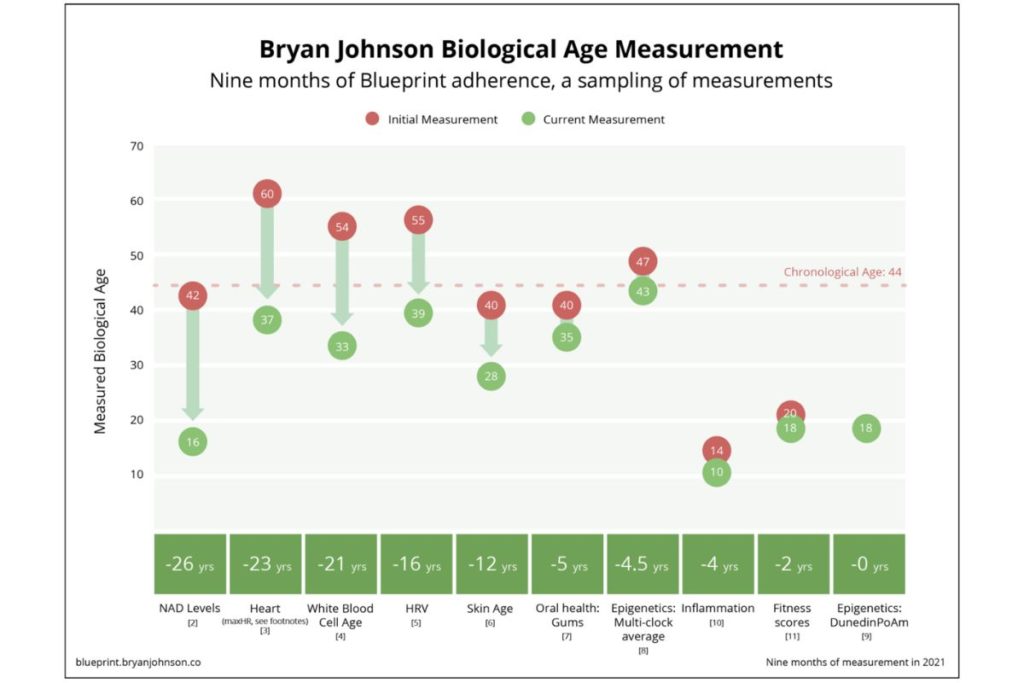
Live longer through healthy sleep
Death is a topic that has always accompanied people and always will. It is a challenge, an opportunity, a boundary and a mystery. It is part of our lives. A current trend is the topic of longevity. This is not just about postponing death as long as possible, but also about extending a healthy lifespan. In short, it's about living as long as possible in good health.
Important note: All content has been compiled with the greatest possible care and corresponds to the current state of scientific knowledge. It is intended solely to provide neutral information and general clarification. The content is in no way a substitute for professional advice from a doctor or pharmacist. The contents do not constitute a recommendation or promotion of the diagnostic methods, treatments or medicines described or mentioned. The text makes no claim to completeness and no guarantee is given for the topicality, correctness and balance of the information presented.
Longevity and healthy sleep
Sleep is vital for our body and brain. While we sleep, our cells regenerate, our DNA is repaired, waste products are removed from the brain, our memory is strengthened and our immune system is boosted. Sleep is therefore a natural fountain of youth that keeps us healthy and fit. SAMINA has been dealing with the exciting questions surrounding sleep and health since 1989. Many scientists, but also people interested in longevity, are intensively involved with sleep. The aim is also to slow down or even reverse ageing processes with the help of sleep.

Study on longevity and sleep regularity
In addition to sleep duration, another factor for longevity has now been scientifically proven: the regularity of sleep. This refers to the regularity of the sleep-wake cycle from day to day, which has an effect on hormone regulation and cell repair. A recently published study has shown that people with a higher sleep regularity have a lower overall and cause-specific mortality risk than people with a lower sleep regularity.
The study also showed that sleep regularity is a stronger predictor of mortality risk than sleep duration. This means that it is not only important how long we sleep, but also how regularly we sleep. To improve sleep regularity, we should try to go to bed and get up at the same time every day and adjust our sleep-wake rhythm to natural light.

Longevity expert Bryan Johnson
One example of a person who is deeply involved in longevity is Bryan Johnson, an American entrepreneur, biohacker and "longevity athlete". Johnson is the founder of Kernel, a company that develops brain-computer interfaces, and Blueprint, a personal project focussed on reversing biological age. According to Johnson himself, he spends around two million dollars a year to optimise his body and reduce his biological age.

The "Blueprint" longevity project
His programme includes a strict vegan diet, a daily exercise programme, 111 nutritional supplements, blood transfusions, skin care, red light therapy and, of course, healthy sleep. Johnson sleeps between seven and eight hours a day, which studies have shown is the optimal amount of sleep for longevity. He also makes sure his bedroom is quiet, dark and cool and that he has a set bedtime.
Johnson claims that his programme has reduced his biological age by 5.1 years, which means that his heart now functions like that of a 37-year-old, even though he is 45 years old. He documents his progress on his YouTube channel and on his website, where he also publishes his recipes, exercises and measurement data. His aim is to inspire other people to take care of their sleep and health too.

Of course, Johnson's lifestyle is not suitable or affordable for everyone. He is an extreme example of someone who does everything he can to live longer and healthier. But that doesn't mean we can't learn from him. We can take some of his tips to heart to improve our sleep and therefore our longevity.
Here we have put together some steps that each of us can take to live healthier for longer:
-
Sleep between seven and eight hours every day. This is the ideal amount of sleep to reduce the risk of cardiovascular disease, cancer, diabetes, Alzheimer's and other age-related diseases.
-
Sleep regularly. Try to go to bed and get up at the same time every day. This helps your body develop a natural sleep-wake cycle, which is important for hormone regulation and cell repair.
-
Sleep in a comfortable environment. Make sure your bedroom is quiet, dark and cool. Avoid noise, light and heat that can disturb your sleep. Use earplugs, curtains, fans or air conditioning if necessary.
-
Invest in your bed. Choose materials that optimally support, warm and allow your body to breathe.
-
Sleep earthed. Grounding means that you establish an electrical connection with the earth, which restores your body's electrical balance and activates self-healing powers. You can ground yourself by walking barefoot on the earth or by using a grounding pad such as the Lokosana from SAMINA to ground you while you sleep.
-
Avoid electrosmog. Electrosmog is the electromagnetic radiation emitted by electrical devices such as mobile phones, computers, televisions, clock radios or Wi-Fi routers. Electrosmog can disrupt your sleep by inhibiting your melatonin, the sleep hormone, and affecting your brain waves. Therefore, switch off all electrical devices in your bedroom or remove them completely.
-
Sleep relaxed. Avoid overeating, drinking, smoking, consuming alcohol or caffeine, or exerting yourself physically or mentally before going to bed. This can affect your sleep by increasing your digestion, blood sugar, blood pressure or brain activity. Instead, relax with a book, meditation, a breathing exercise or soft music.

Critical debate
The longevity movement, or the endeavour to live as long and healthy a life as possible, is a topic that fascinates many people. However, it is also a topic that raises many questions and criticisms. There are no simple answers, only different perspectives and interests. Longevity is not only a challenge, but also an opportunity to reflect on the meaning and value of life.
Sleep as a passive method for a healthy life
The way we live our lives is very individual. Our desire, our mission, is to show as many people as possible how important healthy sleep is for their health and quality of life. Whether you want to live a long life or just enjoy life to the fullest, healthy sleep deserves our attention. And the best part is that once healthy sleep is achieved, it's a passive way to improve your health in the long term. Because you have to sleep anyway, so you might as well do it as well as possible.
Optimising your sleep together
Do you want to optimise your sleep? Then take the 100% free and non-binding sleep analysis with SAMINA now and together we will find out the most important factors for YOUR sleep.




